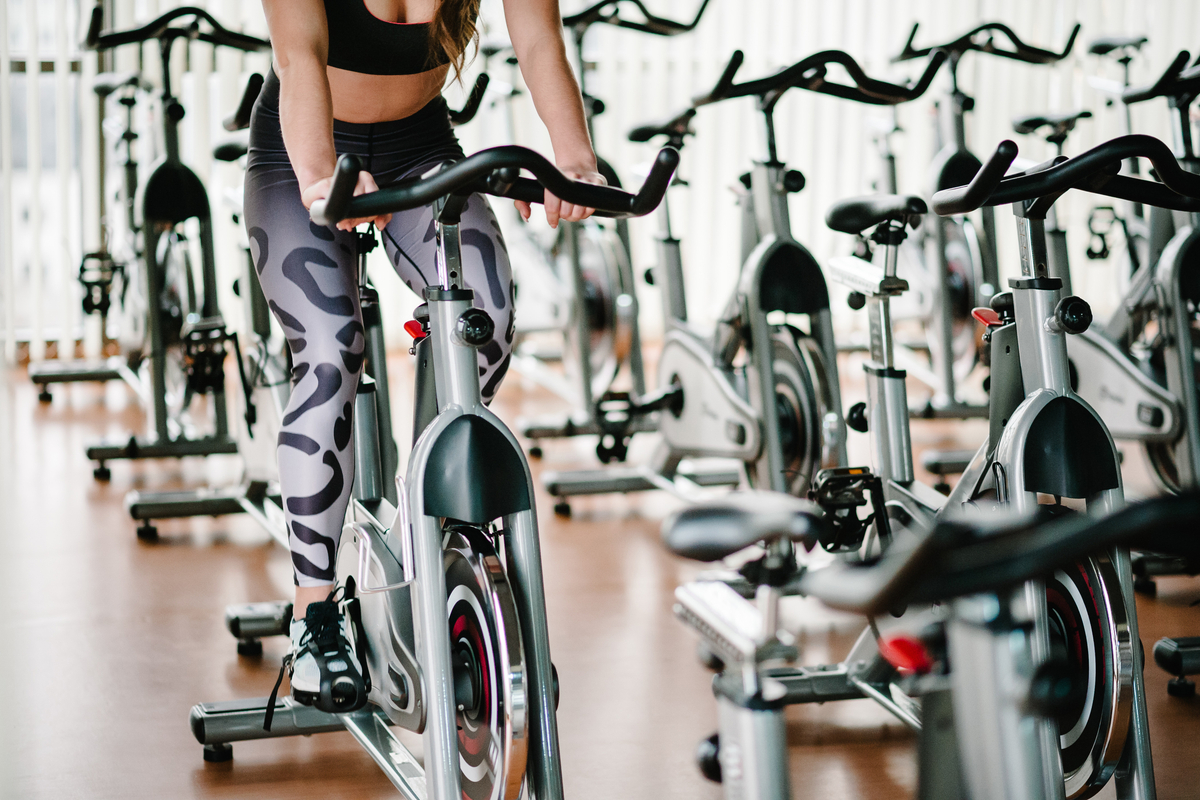
They’re the best workout buddy you could ask for!
New classes can be a little intimidating. You either don’t know where the locker rooms are or which door to use to enter class or what the instructor’s name is—and maybe even all three! And what’s more intimidating is realizing in the middle of class that this exercise technique is just not for you. But never fear—30 minutes later it ends, you’re out the door and you make a mental note to pick something different next time. But what happens if you get these feelings when you’re with a personal trainer?
Working one on one with someone comes with huge benefits. You’ll receive individualized attention to perfect your form. Your trainer will make you stand accountable for every minute you’re working with them, and they’ll introduce you to new techniques you might not get in the classes you normally attend. But with so many trainers to choose from, how do you know which is the right pick for you? And what if you get the feeling that it isn’t the perfect fit? Helene Darmanin, certified personal trainer, certified strength and conditioning specialist and student physical therapist, shares her tips for choosing a trainer that fits your exercising needs.
Ask these questions upfront
Don’t be afraid to quiz your potential trainer a bit to get to know their style. Ask these right off the bat: What is your training philosophy? What kind of experience do you have? What are your qualifications? How do you stay current in the field? “I regularly go to conferences and read current research to ensure I have the best information available,” says Darmanin.
Remember that hiring a trainer doesn’t just require the instructor’s time but your precious hours and money as well. If you have a special need or injury, ask them if they’ve worked with someone with a similar need or feel confident doing so. “I recently started working with a client who has a rare inflammatory condition, similar to rheumatoid arthritis. I had never heard of the condition before, but I did some research and got permission to contact my client’s doctor and discuss applicable precautions,” she explains. If the trainer is qualified and competent they will be able to accommodate most needs based on their knowledge and additional research.
Expect this from your trainer
A good trainer should include you and guide you when setting goals. You may be asked to fill out a questionnaire or perform some movement testing to gauge your starting point. But your trainer should help you come up with realistic goals, and you should see progress towards those goals if you stick with the plan.
During a training session, a good instructor will also ask you to step outside of your comfort zone in order to make progress. You should feel safe to do so with them if you’re a good fit. Darmanin says learning new movement patterns, pushing beyond your boundaries and moving in new directions are all beneficial, satisfying and important for meeting your goals.
You’ll know it’s the right fit if…
You feel happy, satisfied and accomplished at the end of each of your sessions, whatever that means to you. Research has shown the many benefits to exercising, not only physical improvements but mental boosts including those happy endorphins we always hear about. You’re much more likely to stick with something that makes you happy, and that involves working with a trainer that gets you to that point.
Your trainer should also show flexibility in your needs or goals, such as injury, illness, fatigue, mood and the rest of your life. When Darmanin’s clients go on vacation, she writes a program for them to practice while they’re gone. If they’re having a bad day, she may decide whether they should sweat it out or take it easy. “A good trainer will be able to change their plan to fit where you are that day,” she says.
You’ll know it’s not the right fit if…
You ever feel uncomfortable. You should always feel safe and supported during a training session. Other signs might include if you’re not making progress or don’t feel good about yourself. Some trainers like to speak negatively to their clients to motivate them, and if that works for you, great. But if not, that shouldn’t be happening. You shouldn’t feel ashamed, negative or judged, says Darmanin.
Lastly, you shouldn’t feel guilted into signing up with a certain trainer. “Trainers do have to make sales to keep themselves afloat, but their abilities should speak for themselves,” she explains. “If they have to drive a hard sale, and you’re not happy with the pressure, just walk away.”
Your trainer wishes you knew that…
Spot training doesn’t work-, meaning you can’t make your stomach flat by doing crunches all day. The way our bodies store fat is mostly genetic, so although muscle helps keep things tight, there could still be a layer of fat over it–and that’s natural and normal, Darmanin says. So, if you’re working with a trainer and don’t end up with washboard abs or perfectly sculpted arms it’s not a reflection of their training abilities. It’s just the way you’re built!
And if you think you’re just not ready for a trainer…
Think again! There’s always something new to learn, and checking in with a professional can help make your workouts more efficient, effective, and enjoyable! “We can help you prevent injuries and illnesses and hold you accountable to working out,” explains Darmanin, “which makes it worth the investment.”




